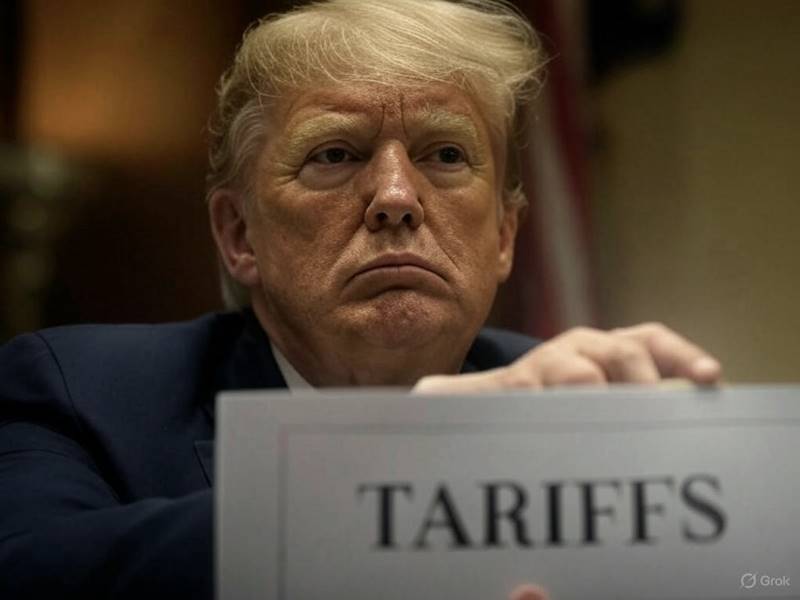Trump tariffs stir up U.S. alcohol market
Imported Spirits Face Challenges, Domestic Producers See Opportunities
2025-03-06

New import tariffs introduced by the Trump Administration are shaking up the beverage alcohol industry in the United States, with some categories facing serious challenges while others might see a boost. As of March 4, 2025, goods from Canada and Mexico now carry a 25% tariff, and an additional 10% tariff applies to imports from China. President Donald Trump has also proposed a 25% tariff on European Union imports, though no specific timeline for that has been confirmed. These changes stem from the administration's trade policies, aimed at protecting domestic industries, but they're creating a ripple effect across the alcohol market.
Single-origin products like Tequila from Mexico and Canadian whisky from Canada are particularly vulnerable because their production can't be moved to the U.S. due to strict legal designations. Other drinks in the same boat include Irish whiskey, Cognac, Champagne, and Prosecco, all tied to their home regions in the EU. Mexican beer imports, a big player in the U.S. market, also face the new 25% tariff from Mexico. The UK, meanwhile, is working on a separate trade deal with the U.S. to avoid tariffs on Scotch whisky, hoping to keep its exports flowing smoothly. According to the IWSR, a leading source for beverage alcohol data, these categories made up about 70% of spirits import value in the U.S. in 2023, showing just how much is at stake.
The U.S. is a critical market for these products, but the reliance varies. For example, 69% of agave spirits exports by value—mostly Tequila—go to the U.S., while Canadian whisky sends 79% of its exports here. Cognac and Scotch whisky depend less on the U.S., with 26% and 11% of their exports respectively, but they're still exposed. Premium and super-premium price tiers, which include many of these imported spirits, are expected to take the hardest hit because the tariffs are based on value, not volume. Marten Lodewijks, President of IWSR U.S., points out that Tequila is especially at risk since it leans heavily on premium sales and the U.S. market. Data from late 2024 shows consumers across all income levels pulling back from super-premium Tequila, a trend that could worsen with higher prices.
On the flip side, American-made spirits like whiskey, vodka, and rum stand to gain. Since they're produced domestically, they avoid the tariffs entirely. If importers pass the extra costs onto consumers, U.S. brands could become more competitive on price. Lower-end price tiers, which skew toward domestic production, should also benefit. Canadian whisky, while hit by tariffs, has a strong presence in cheaper tiers, which might soften the blow compared to pricier imports like Scotch or Cognac. Still, it'll face tougher competition from U.S. whiskey, which isn't subject to the same trade barriers.
Wine is another area feeling the pressure. Italy and France lead still wine exports to the U.S., with New Zealand trailing behind. For sparkling wine, Prosecco from Italy and Champagne from France dominate. If EU tariffs go through, these could see a drop in U.S. sales. Domestic wine, mostly consumed within the U.S., would likely pick up an edge as imported bottles get pricier. Countries like Australia, New Zealand, Chile, and Argentina could also benefit if their wine exports dodge U.S. tariffs, as they've done in the past.
Beer and ready-to-drink cocktails, or RTDs, tell a different story. The U.S. beer market is largely domestic, so most brands won't feel the tariffs. The exception is Mexican beer, a notable import category now facing the 25% tariff. RTDs, almost entirely made in the U.S., should stay untouched and might even grow if imported spirits become more expensive. Lodewijks notes that spirit-based RTDs could attract new drinkers as a cheaper alternative, potentially taking share from both imported beer and spirits.
The broader impact on the beverage alcohol industry is hard to pin down. Lodewijks says the tariffs will likely hurt the total market in the U.S., though global effects might be smaller. Too many factors are still up in the air—how big the tariffs will get, how long they'll last, and what retaliatory moves other countries might make. Speaking of retaliation, Canada, Mexico, and possibly the EU are already talking about tariffs on U.S. exports, though details were still emerging as of March 4. For U.S. spirits exporters, existing stock and slow-moving trade talks might delay the pain, but the threat is real.
Brand owners are turning to data to navigate this mess. IWSR's analysis tools are helping companies map out scenarios, especially for spirits like Tequila, where state-by-state sales trends vary widely. States like Ohio and North Carolina, for instance, show surprising strength in high-end Tequila sales. With so much uncertainty, the industry is bracing for change, watching closely as trade tensions unfold.
Founded in 2007, Vinetur® is a registered trademark of VGSC S.L. with a long history in the wine industry.
VGSC, S.L. with VAT number B70255591 is a spanish company legally registered in the Commercial Register of the city of Santiago de Compostela, with registration number: Bulletin 181, Reference 356049 in Volume 13, Page 107, Section 6, Sheet 45028, Entry 2.
Email: [email protected]
Headquarters and offices located in Vilagarcia de Arousa, Spain.